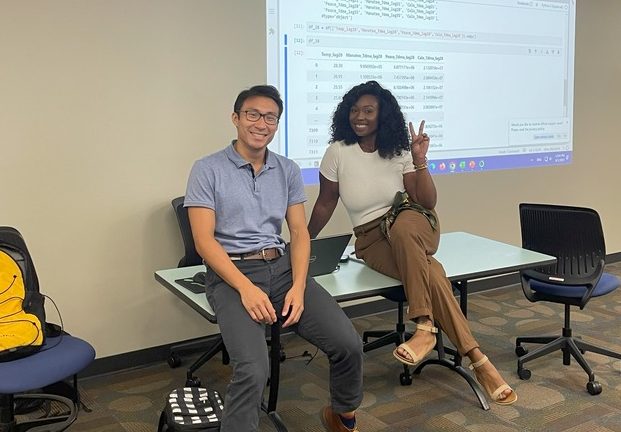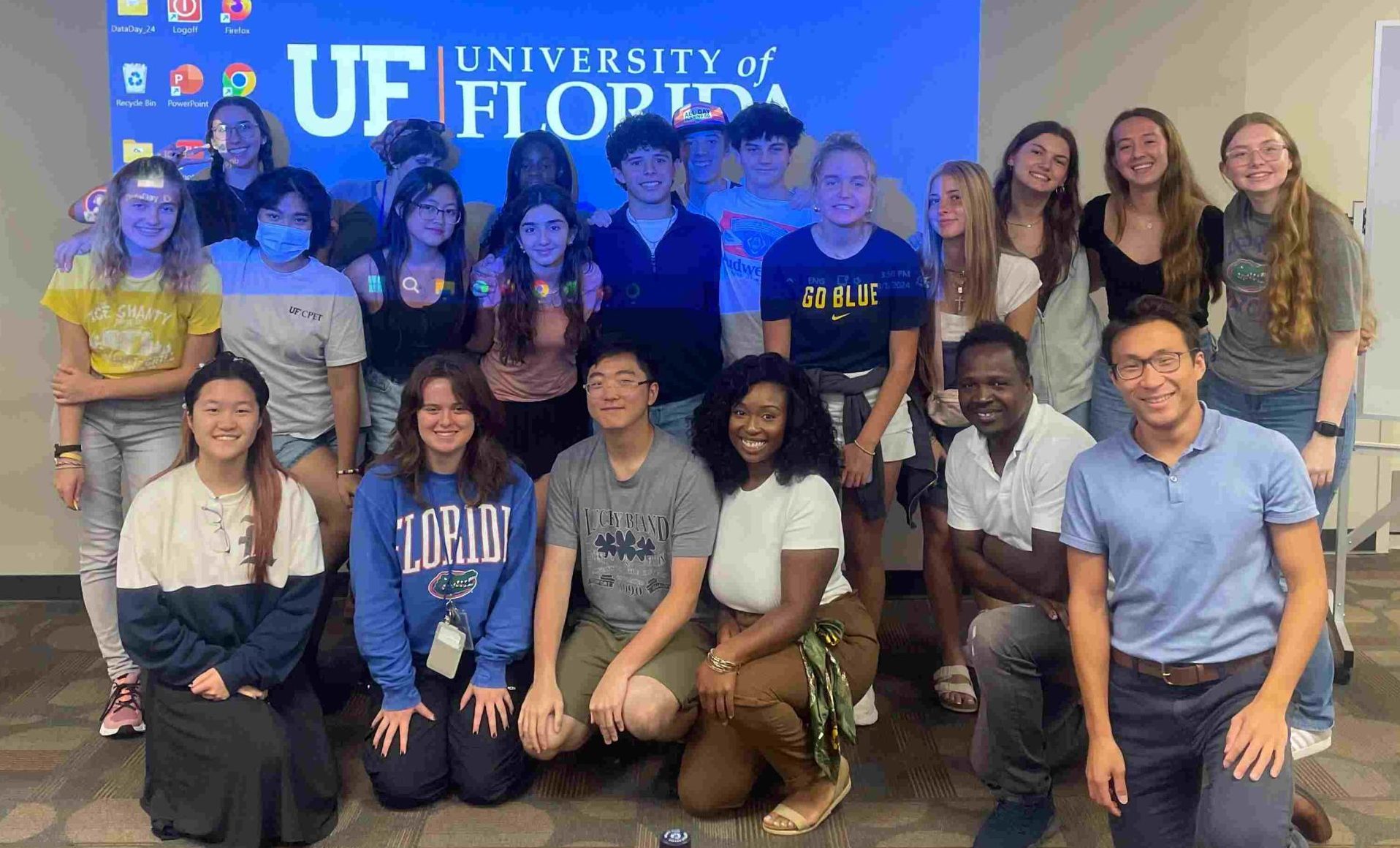Alexis Jackson didn’t discover environmental engineering as a career option until right before graduate school, when she was on track to become a wetland ecologist. Now a Ph.D. student in the University of Florida’s Department of Environmental Engineering Sciences, she volunteers to connect young students with science fields they might not otherwise encounter. In August, she teamed up with environmental engineering graduate student Nick Chin to lead a class for high school students, helping them analyze data sets to explore how chemicals can impact human health and the environment.

“The intersection of technology and earth science is a growing field that will constantly generate new, thought-provoking questions and bring out the best in scientists,” said Chin, who, along with Jackson, is advised by David Kaplan, Ph.D., professor in environmental engineering sciences. “These students are growing up in the age of big data, and we wanted to equip them with skills that will be valuable for their future careers and the rest of their lives.”
During the University of Florida’s Center for Precollegiate Education and Training (UF CPET) 2024 summer program, students created their own research questions related to climate change, water quality and red tide. Topics ranged from factors influencing red tide blooms, to how changes between the average temperature of an environment and its soil can prove climate change, to mapping pH variations across wetland systems. Using datasets and guidance provided by Jackson and Chin, students applied machine learning techniques and programming languages R and Python to interpret their results. At the end of the program, they shared their reflections with fellow students and the CPET team.

“All of the students gained something from this program,” said Jackson. “One student reached out afterward, who is applying to UF and interested in both environmental engineering and environmental science. She wanted to learn more about our research, and that affirmed why I’m doing this Ph.D. It reminded me that somebody is watching me, and I’m grateful to be who I needed to see when I was younger. Sometimes we get so caught up in our own lives that we forget that everybody needs somebody.”
—
By Megan Sam
